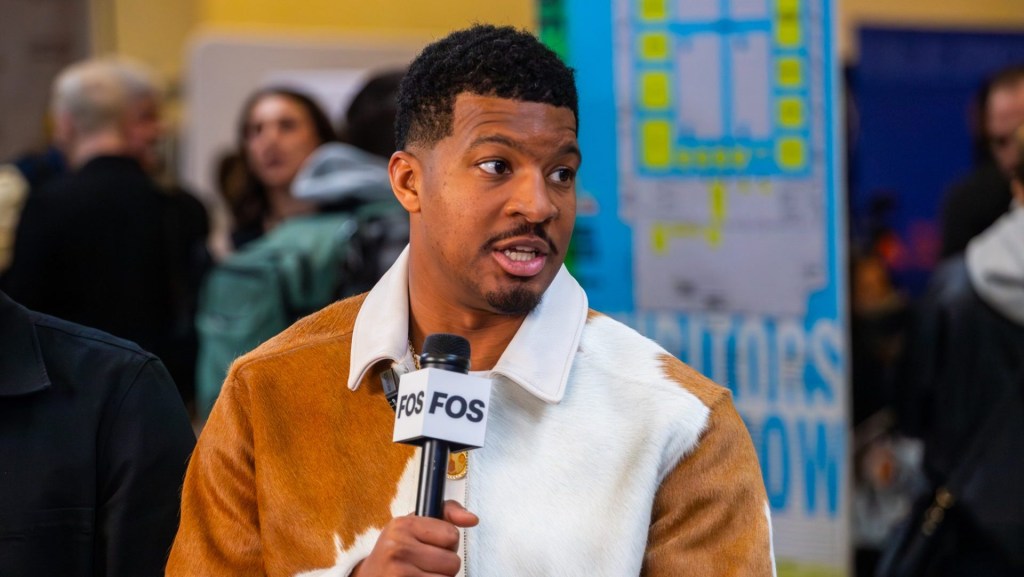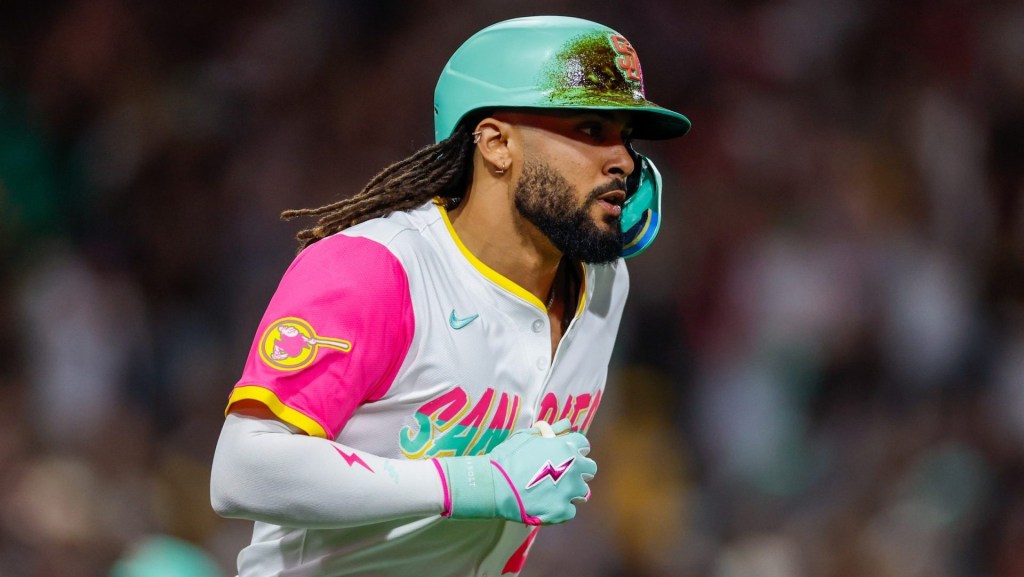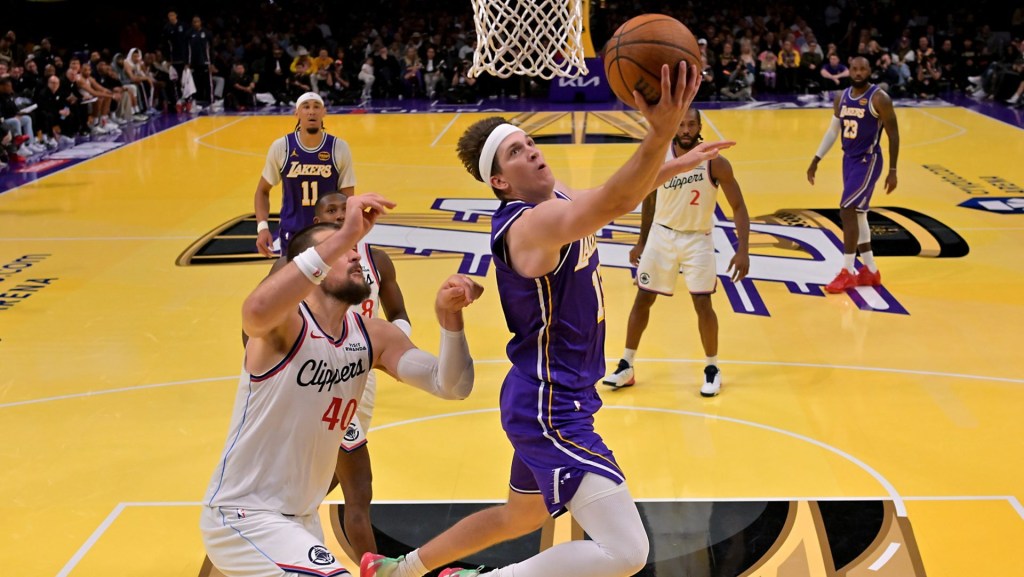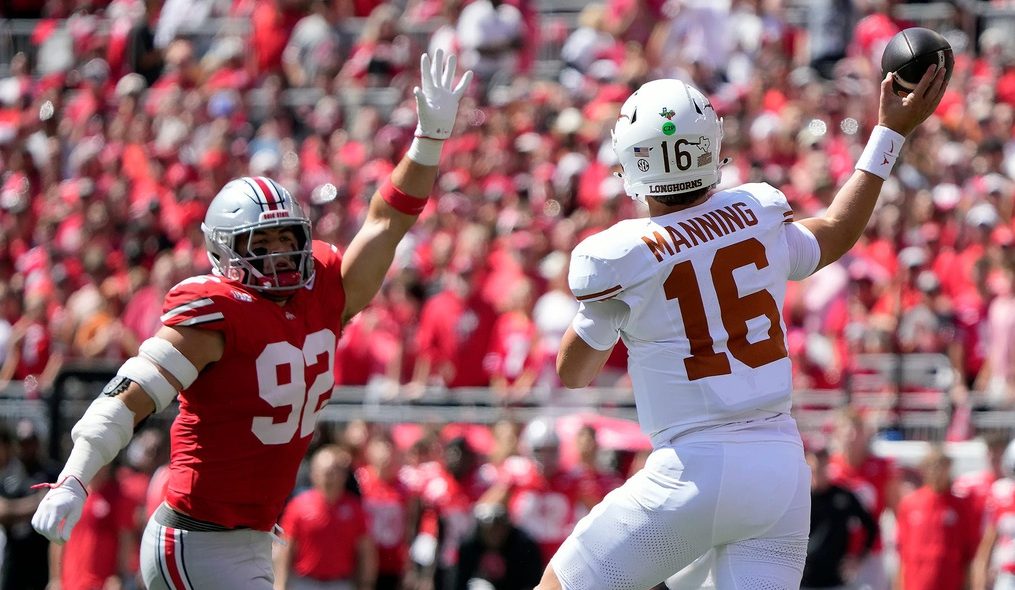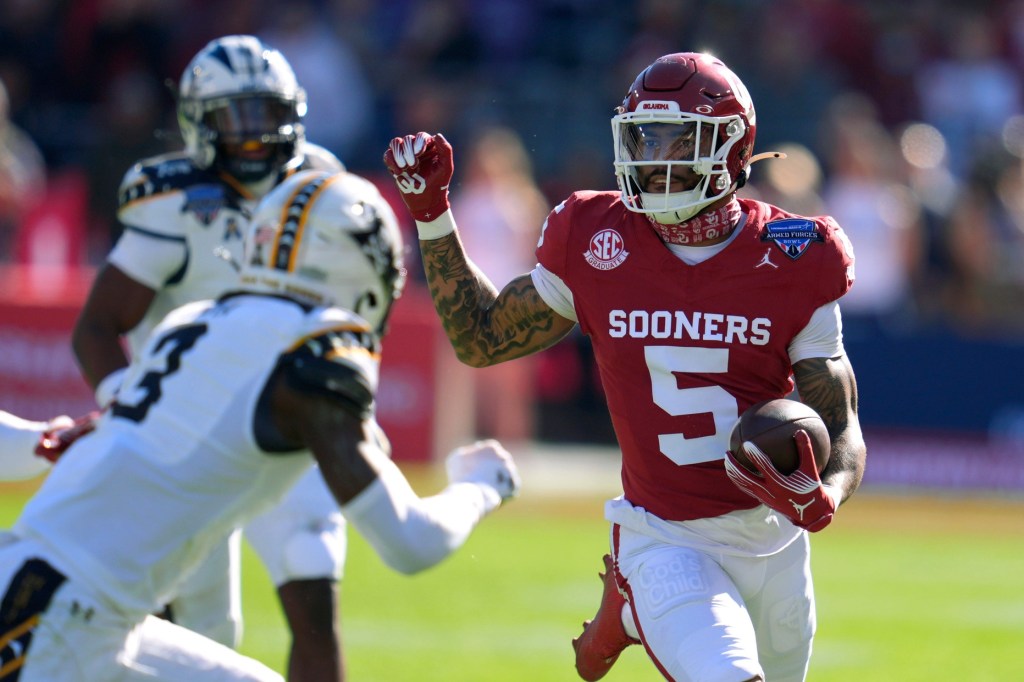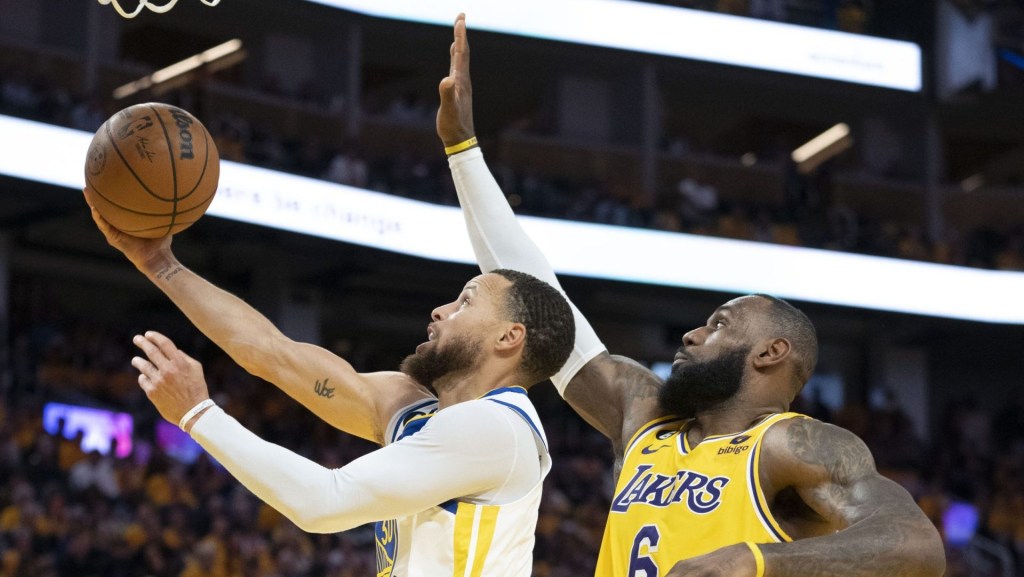This interview is presented to you by the University of Nebraska — Lincoln Master of Arts in Business with a Specialization in Intercollegiate Athletics Administration.
By: Travis Gorsch, @tgorsch3

We’ve all heard the saying, “The third time’s the charm,” but for Kyle Chank, the first two were pretty charming too. We may be better off comparing Kyle’s journey to the all too familiar lyrics of the Jackson 5 song ABC. But that wouldn’t do justice or represent the most accurate portrayal of Kyle’s journey to his third Super Bowl either. Instead of making comparison’s using corny quotes and song lyrics from the ‘70’s, Front Office Sports sat down with Kyle to talk about his career progression where he incorporated his own comments and quips.
Kyle is the Director of Transportation and Operations at the Houston Super Bowl Host Committee. Super Bowl LI will be Kyle’s third consecutive Super Bowl Host Committee since starting in Arizona at Super Bowl XLIX. Kyle will be the first one to admit that it hasn’t ever been as easy as A B C, especially getting his foot in the door in the sports industry. He was gracious enough to take Front Office Sports through his journey and share his insights along the way.
“Like many people these days, before I got my foot in the door, I got that same door slammed on me multiple times. Or even worse, they never answered the door. Persistence is key and being willing to do almost anything. I always joked that I’d mop the bathroom floors at Wrigley Field if that’s what it took.”
Kyle earned his Bachelor’s in Digital Journalism from Arizona State University before moving all the way across the country to pursue a Masters in Sports Industry Management from Georgetown University.
“About half way through Arizona State, I knew I wanted to get my Masters in Sports Industry Management. I believed that my degree in digital journalism would be the most beneficial to my career in the long run. I believe we are all digital journalists in our everyday lives: social media, blogs, these interviews, etc. Getting that degree set me apart just a little bit from the rest of the pack and also allows me to have insightful discussions with my communications/marketing team, even if I’m on the operations team.”
Kyle’s parents have stressed the importance of education to him and now he is echoing their sentiments to students and young professionals looking to break into the sports industry. When looking for graduate programs or even undergraduate programs, Kyle points at several factors to take into consideration, including faculty and classes.
“It teaches you to be prepared and organized. Most importantly, I learned from adjunct professors who were implementing what they taught in the real world, in real time. I’d recommend taking an operations class and an economics class. No matter what field you’re in, there is an operations and economics element. Operations: It has to make sense and it has to be efficient. Economics: It has to be under budget, simple enough. I had a Stadium Operations class at Georgetown, where they made us open a venue from scratch. We created staffing plans, RFP’s, contracts, etc. I use that RFP template that I created to this day and it still works. It’s little things like that.”
At the same time Kyle was attending graduate school; he got his first job in sports as a Marketing and Operations Assistant in the Georgetown Athletics Department, overseeing all Georgetown Sports. However, he was also working another gig on the side at Loews Hotel since his internship at Georgetown was unpaid and he was living in one of the top 5 most expensive cities in the country.
“Loews Hotels is actually my favorite story. Calling my parents wasn’t an option, as they were struggling financially just like myself. I applied to be a server at a restaurant in Loews Hotels. They loved me in my interview, but I had no experience serving and when they asked why I wanted to work there I didn’t know what to say. They gave me a bus boy position and I accepted for dirt cheap. I worked my butt off, shook the right hands and smiled every day. Two months later, I was a server, four months later I was a bartender and six months later I was a manager. I made great friends and enough money to live off of, but I quit to pursue my passion in sports.”
Kyle made the move back to Arizona State to work in their athletic department as an Event Coordinator Assistant, directly assisting the Associate Athletic Director of Operations and Facilities. At ASU, he was able to work on the Pac-12 Football Championship Game, 2013 Buffalo Wild Wings Bowl and 2014 Ticket City Bowl, giving him experience with some big time college football games.
“I had interviews and offers at a couple east coast schools, but I had an opportunity to work in my alma mater’s athletic department, learn the ropes and live with friends/family in Arizona. It wasn’t an easy decision and I thought it was kind of a step back, which was hard to admit. Still to this day, that was the greatest decision I ever made and I always look back at that as a turning point in my life.”
“The best thing I learned from those games at ASU is that the game kicks off no matter what. I use that mantra still at the Super Bowl. The game is going to kick off at an exact time and date, whether you’re ready or not.”
As a 22-year old in April of 2014 Kyle was hired as the Operations and Logistics Coordinator for the Arizona Super Bowl Host Committee in preparation for Super Bowl XLIX in Glendale, Arizona. Kyle credits his growth, personally and professionally, not only to his supervisors, but also to those that he has had the pleasure of supervising.
“My boss quit ASU one day and was starting at the Super Bowl. I said if you ever need someone, I’m your guy. She didn’t call. She actually called my supervisor at ASU and the timing, the role and the pay wasn’t right for her at the time. So then I got the call and the rest is history. Timing is everything. I actually thought I’d be working on the World Series at 22, but can’t be right all the time I guess!”
“I learn from everyone. Of course, I have mentors that were my bosses and teachers, but I think I learned more from interns, security staff, ushers, etc. They’re the reason why I have a job. They’re the reason I come to work every day.”
After getting a taste of Super Bowl XLIX in Arizona he packed up his bags for the third time in three years and moved to the Bay Area. He joined the San Francisco Bay Area Super Bowl 50 Host Committee as an Operations and Logistics Manager, a step up from his Coordinator position the year before. This was the Bay Area’s first Super Bowl in 30 years when it was held at Stanford Stadium. The 49ers had just built a brand new stadium in Santa Clara, CA which was 40+ miles from San Francisco where the majority of the celebration would take place before the game.
“I focused on the South Bay (Santa Clara and San Jose). It was challenging on the distance, but those cities were similar to Phoenix and Glendale which made it a good fit for me. The biggest concern was the traffic and transportation.”
“Preparation is key. The one line that I can’t stand is, ‘I’ve done this before.’ I never say it because each city is different. People will say I’ve done this event and that event, so Super Bowl will be a piece of cake. If you go in with that mentality from the beginning, it’s already over.”
“We handle all the leg work for the practice sites, team hotels, etc. Then we hand it all over to the NFL. Practice sites are one of my favorite parts of the job because they’re usually on college campuses and I get to reconnect with college athletic departments for a little while. So my communication with the teams is minimal. We are in the meetings but that’s about it. The way I see it, though, is that I have the experience to do it if I ever need to.”
As if two Super Bowls weren’t enough, Kyle has been down in Houston, Texas preparing for his third Super Bowl with the Houston Super Bowl Host Committee as the Director of Transportation and Operations. There were a lot of factors that went into the decision to go to Texas for a third consecutive Super Bowl. Kyle touched on his career progression, connections, location and financial factors involved.
“I’ve never been one to be concerned about title. My title could be intern as long as I’m getting the right experience, more workload and meeting the right people. That being said, having a Director title was an important factor as it will set me up nicely for the next jump in my career.”
“I’d known the Houston Host Committee staff for two years, some more than others, but two years nonetheless. They played a huge role in my decision and created a comfort level on the move.”
“The cost of living was a factor as well. San Francisco was a life-changing experience, but it didn’t change the fact that I still have student loans to pay.”
Kyle didn’t necessarily see his career unfolding the way it has so far and is keeping an open mind on where he wants to be in the next five years in his career.
“That’s the million-dollar question. At 14-years old, I thought I’d be throwing touchdowns at the Super Bowl. At 19 years old, I thought I’d be reporting on the sidelines of the Super Bowl. Here I am at 24 years old now and although I was 0-for-2 on my previous five-year goals, I still ended up pretty well off. At 29 years old, I’d like to be in an executive level role in the sports industry.”
For students and young professionals looking to follow a similar path as Kyle’s, he had several important tips that he shared around being prepared when your name is called, your work ethic, and networking with other professionals.
“Take every opportunity you can to get in the door. You might not like public relations, but if you get that internship interview, your elevator pitch better be the best PR pitch I’ve ever heard.”
“You have to work harder than anyone else. You have to beat your boss to work in the morning and leave after them. You also have to have fun and enjoy the ride. Go to lunch with a different co-worker every week. Grab happy hour with an executive and pay for their $13 Manhattan even though that’s more than you spent at the grocery store for food for the week.”
“Build your network with people that’d you’d invite to your wedding. I haven’t had a girlfriend in five years, so I can’t pass along wedding advice.”
There were skills that led to Kyle’s success at a young age. He offered up his advice on how to sharpen these skills and the value of volunteering.
“I credit a lot of my high school teachers for my work ethic. I took AP and IB courses and couldn’t tell you about the curriculum anymore, but I can tell you how many all-nighters I pulled and I how I studied more than anyone else.”
“Sharpen your skills from the bottom up. I promised myself I’d never be too good to stand on a corner and help way find, to copy my own papers and I’ll be the first one to volunteer if I have time. Calmness is a great skill to sharpen. Under pressure, even the best people can break. Being calm under pressure, even if you’re broken down already, will go a long way.”
“There are so many volunteer opportunities. I firmly believe any experience is good experience and it ultimately becomes what you make of it. The cause is the most important part; however, next time you volunteer, actually talk to the other volunteers and you’ll be surprised to realize how many of them are CEO’s, Presidents, etc. in their own profession. Great cause and great networking.”
Connect with Kyle:
LinkedIn: linkedin.com/in/kylechank
Super Bowl LI will be played on February 5, 2017. Follow along the action as it unfolds by following Houston’s social media channels.
Twitter: @HouSuperBowl
Facebook: Houston Super Bowl LI
Official Website: https://www.housuperbowl.com/



![[US, Mexico & Canada customers only] Sep 28, 2025; Bethpage, New York, USA; Team USA's Bryson DeChambeau reacts after hitting his approach on the 15th hole during the singles on the final day of competition for the Ryder Cup at Bethpage Black.](https://frontofficesports.com/wp-content/uploads/2026/03/USATSI_27197957_168416386_lowres-scaled.jpg?quality=100&w=1024)


![[Subscription Customers Only] Jun 15, 2025; Seattle, Washington, USA; Botafogo owner John Textor inside the stadium before the match during a group stage match of the 2025 FIFA Club World Cup at Lumen Field.](https://frontofficesports.com/wp-content/uploads/2026/02/USATSI_26465842_168416386_lowres-scaled.jpg?quality=100&w=1024)
![[Subscription Customers Only] Jul 13, 2025; East Rutherford, New Jersey, USA; Chelsea FC midfielder Cole Palmer (10) celebrates winning the final of the 2025 FIFA Club World Cup at MetLife Stadium](https://frontofficesports.com/wp-content/uploads/2026/02/USATSI_26636703-scaled-e1770932227605.jpg?quality=100&w=1024)

